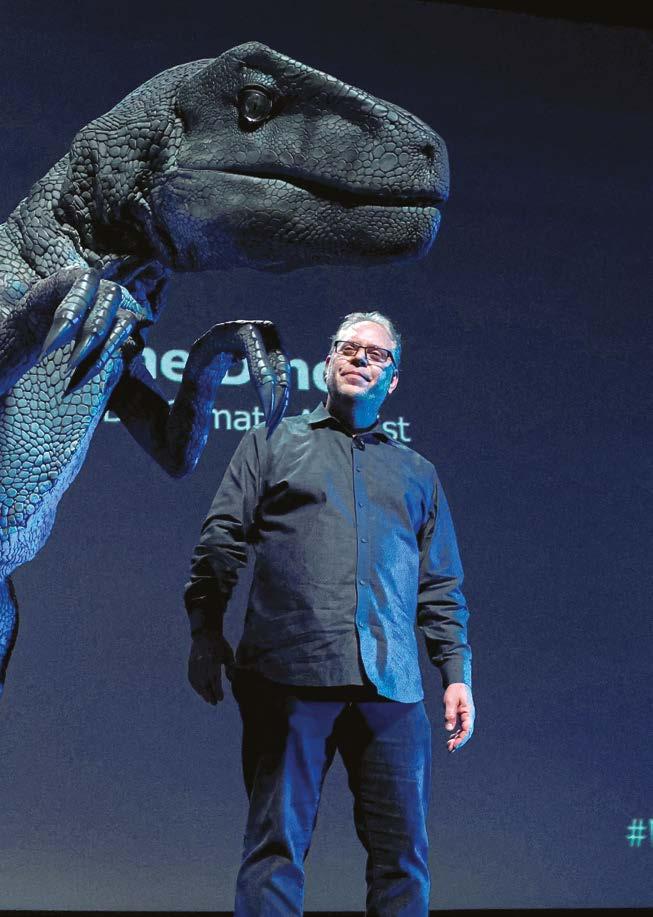
5 minute read
Uncertain Times, Unsettled Lives: How Do We Build the Future?
Uncertain Times, Unsettled Lives: How Do We Build the Future?
For the first time since 1990, the UN’s Human Development Index has registered a decline for two consecutive years. Turning the corner and transforming the prevailing sense of uncertainty into one of opportunity is still possible, also through the social value of insurance.
Advertisement
THE EDITORIAL OFFICE
Still reeling from the multiple blows of the pandemic, the war in Ukraine and extreme weather events that serve as a constant reminder of the necessity of urgent intervention to protect the climate, the world has been set back by five years. This is according to the findings of the 2021/22 Human Development Index, prepared by the United Nations Development Program (UNDP): an indicator of macroeconomic development that has been published since 1990 to provide information on quality of life by taking into account not only countries' GDP per capita, but also literacy and life expectancy. And now, for the first time in 32 years, the results are down on last year’s for the second consecutive year.
THE UNDP REPORT
"Uncertain Times, Unsettled Lives: Shaping our Future in a Transforming World" is the title chosen by the UNDP for the report that presents the findings of the Human Development Index. It is a title that says so much: as the press release accompanying the launch of the report explains, the world seems to have inexorably bounced from one crisis into another, in a vicious cycle of problems to be tackled and that we are seemingly unable to resolve at source. The backwards step noted by the Human Development Index on the Sustainable Development Goals outlined in the UN’s 2030 Agenda has impacted nine out of 10 countries globally. Of these, over 40 percent have seen a decline in both 2020 and 2021, confirming the pervasive nature of the global crisis. The partial recovery – in those places where it has begun – is not spread out evenly across the world, throwing into sharp relief the increasingly stark inequalities in Latin America, the Caribbean, Sub-Saharan Africa and East Asia.
It is a crisis which the planet is struggling to deal with, often leaving us unable to formulate anything beyond sticking-plaster solutions (for example in confronting the increasing cost of living and energy crisis) that only serve to postpone the necessary systemic changes, feeding the continued insecurity and affecting people’s physical and mental wellbeing. Is it still possible to escape this downward spiral of inequity and uncertainty?
THE “THREE I’S” THAT MIGHT MAKE THE DIFFERENCE
The answer is yes: according to the UNDP we can still turn the corner and transform the prevailing sense of uncertainty into one of opportunity. To achieve this, it is necessary to focus on the “three I’s”: Invest, Insure, Innovate. Invest in resources and capacity, including renewable energy and plans to tackle the pandemic and other crises; Insure to guarantee social protection through ups and downs for communities in an uncertain world in the throes of constant transformation; and Innovate in technology, the economy and culture to develop the necessary capabilities to tackle the challenges of tomorrow.
With holdings of approximately 11 trillion euros and a strong track record in long-term investments, insurance companies can play an outsized role in the solidity and resilience of the economic, social and environmental systems. Insurance has an important social role in managing and reducing uncertainty, protecting from risks and – in the words of Generali’s founder, Giuseppe Lazzaro Morpurgo – working “to combine the general good with the individual interest, which is the true goal of human actions.”

Marco Sesana, Generali Group General Manager, at the presentation of the 2021/2022 edition of the Human Development Report (HDR) in Venice's Procuratie Vecchie, on October 24, 2022.
The presentation, which took place in Italy for the first time, was organised by the Italian Ministry of Foreign Affairs and International Cooperation and UNDP in partnership with Generali and The Human Safety Net Foundation.
THE PRESENTATION AT THE PROCURATIE VECCHIE
Human development, inclusion and the role of the insurance industry. It is significant that these subjects, covered in a UNDP report presented for the first time in Italy together with the Italian Ministry of Foreign Affairs, were discussed at the Procuratie Vecchie building, the symbolic building in Venice's St. Mark's Square that hosts the headquarters of The Human Safety Net, Generali’s foundation that works to develop the potential of people living in circumstances of vulnerability. Working together with other companies, foundations and non-profit organisations in over 20 countries, The Human Safety Net is particularly focused on supporting families with young children and integrating refugees through work.
Among the speakers at the presentation of the UNDP report on October 24 were the chairman of Assicurazioni Generali, Andrea Sironi; Director for Development Cooperation Strategy and Planning, Minister Plenipotentiary at the Italian Ministry of Foreign Affairs and International Cooperation, Mauro Massoni; Assistant Secretary-General of the United Nations, Ulrika Modéer; and Director of the Office of the Human Development Report, Pedro Conceição. Also in attendance at the event were representatives from foreign diplomatic missions in Italy, academia, civil society, organisations and foundations engaged in economic and social development and other European and international institutions.
The challenge placed before the insurance industry is a complicated and delicate one. Faced with an increase in inequality and polarisation in societies that has reduced overall levels of trust and collective spirit, insurance must offer broader and better protection for people, innovating and modernising its services in such a way to make it possible to tackle the prevailing instability more effectively. All this while never losing sight of the need for financial inclusion and ensuring access to financial and insurance services to reduce poverty and inequality, even for the most vulnerable, enabling them to regain control of their lives and build hope for the future.










